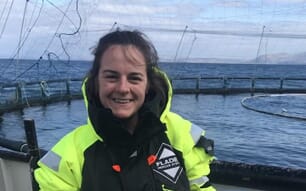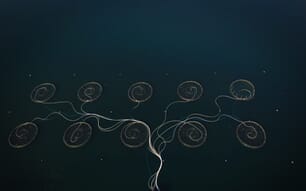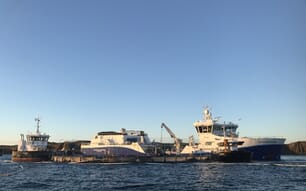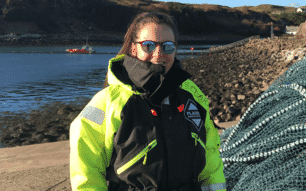When I started working on a fish farm, the last place I thought I would end up was at Holyrood. But that is exactly where I found myself in December for an MSP’s parliamentary reception.
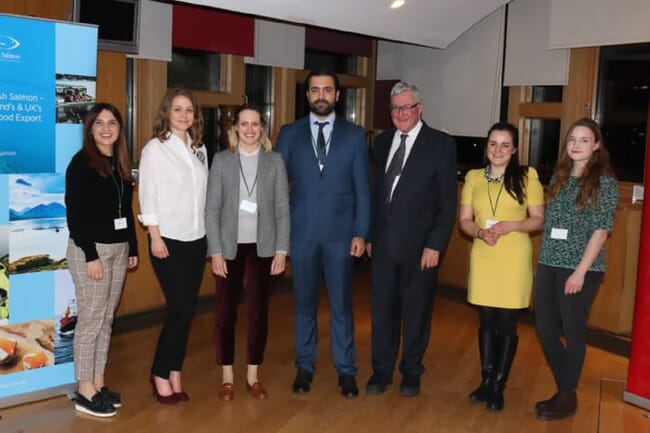
The event marked the launch of a new report by the Scottish Salmon Producers' Organisation (SSPO) highlighting the number of young people working in the Scottish sector, with over a third of direct employees believed to be under 30. The evening was well attended by MSPs, Scottish salmon producers and industry bodies and there seemed to be a real sense of optimism for 2019 and beyond.
Apart from being a welcome excuse to ditch my wellies and Fladen suit in favour of something a bit smarter, the event was a great opportunity to meet people from across the industry, with differing experiences, roles and views.
Of the other “young people” in attendance, there was a fish vet, a biology coordinator, a marketing specialist, a salesperson and another farm technician. They had travelled to Edinburgh from places such as Dingwall, Harris and Shetland. Even this small cross section of the industry demonstrated the variety of employment opportunities that are available in the sector, mainly in the Highlands and Islands.
For people young and not so young, salmon farming often provides a means to remain in their local community or to choose to live rurally. The jobs are well paid and offer good career progression and training. If it weren’t for salmon farming, I think the economic and social structure of many west coast communities would look very different – and not in a good way.
On Muck for example, both my manager and his assistant live on the island full time and, along with their families, make up roughly a quarter of the population. This might not sound like a big deal to most people, but with the number of residents hovering at around only 40, the impact of their presence is significant.
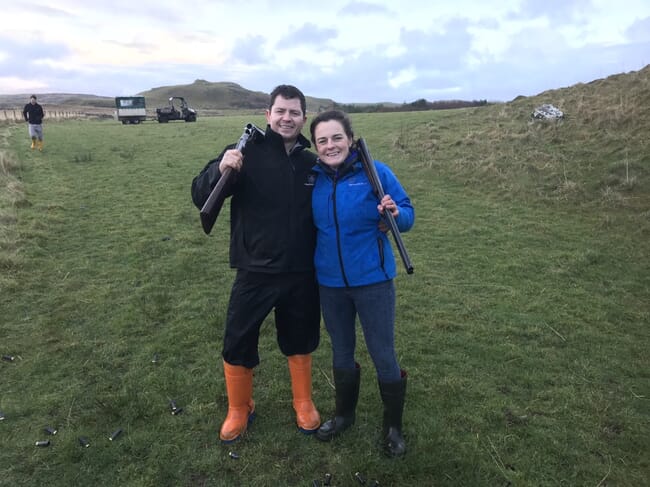
After Holyrood, it was back to Muck the next day for our last shift before Christmas and it was a challenging one on the fish farm. Day after day of strong winds meant we couldn’t initially get out to site, so we fed the fish remotely from the shore base and did other odd jobs around the place. When the winds had died down and we could get out to site, we spent a few days fixing and putting things back in place following the storms.
But it wasn’t just Mowi that struggled with the weather this month – Caledonian MacBrayne’s ferry service was also disrupted or cancelled from time to time. On one such occasion, fellow technician Colin MacMillan and I took the short trip over to Eigg to collect locals off the ferry from Mallaig, as it was looking uncertain that it would be able to berth at Muck. Whilst we were there, we also offered to take any deliveries for the island to make sure that they reached their final destination.
When the door rolled open and we saw half a transit van of food boxes, mail bags, Amazon parcels, wine, a dog bed and even a Christmas tree, I think it’s safe to say our hearts sank a little. Parcel by parcel, everything had to be carefully placed down in the hold or galley of the Beinn Airein to keep dry, and then be unloaded a short while later when we returned home. But as we watched the ferry turn back just short of Muck, we were pleased to have been able to help the community, especially in the lead-up to Christmas.
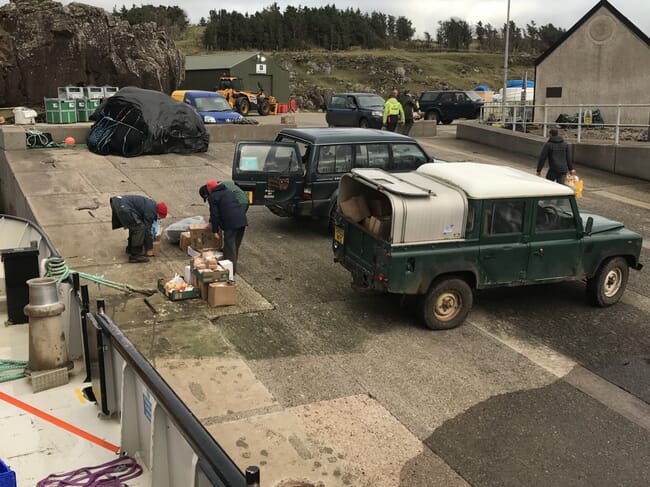
That same night, Jacob Green – who started at the same time as me – donned a red suit and white beard to play Santa at the local children’s Christmas party. Despite being a bit on the slim side for the role, a pillow completed his look and it sounds like he was a real hit – with both the kids and adults!
I think it’s hard to put a value on these little ways in which Mowi helps and integrates with the local communities where it operates. Whilst delivering Christmas shopping, making sure people get home or playing Santa are not huge feats in themselves, together, over time, these small acts do make a difference to a remote place like Muck.
And it’s not just a one-way street. We also have a lot to be grateful for working on the island and within such a vibrant community.
Last shift we were kindly invited up to the farm one evening to celebrate the arrival of the newest island baby. Along with everyone on Muck, we sat around the big kitchen table, chatting, eating homemade lamb curry and drinking mulled wine whilst the children played.
Although we were at home for Christmas itself, we had our Christmas party just before heading off shift. The team from the fish farm on Rum joined us for an afternoon of clay-pigeon shooting followed by a delicious meal at The Lodge. Shooting is a big part of life on Muck and it was great to see another side of the island… even if I wasn’t very good!
We were then back on shift for New Year and it is one that I will remember forever. We said goodbye to 2018 and hello to 2019 at the hall with food, games, dancing and a few drams on New Year’s Eve. I can’t imagine there are many places in Scotland (or the world) where every member of a community sees the bells in together, but that is exactly what happens here.
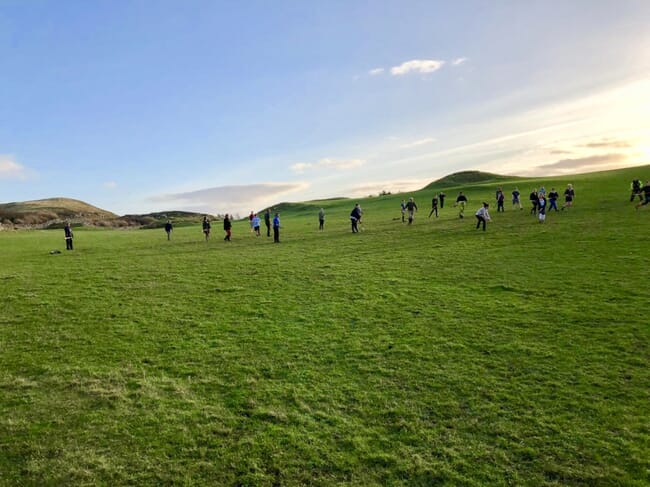
The next afternoon, we took part in the annual New Year’s Day hockey match. A field with a slope formed the pitch, some rocks acted as goals and wellies were the most popular footwear of choice. And as the sun went down, and the game came to an end, we joined in on a bit of first-footing [the practice of visiting neighbours, traditionally armed with some whisky and some fuel for the fire, early in the new year] around the houses. It was the perfect start to 2019.
When you are away from your own friends and family for two weeks at a time, occasions like these, when you feel part of something much bigger than the fish farm or company –part of a community – are all the more special. I had met most people on Muck before, but it was often a fleeting encounter on the ferry. To have been made to feel so welcome, have proper conversations and get to know people better this festive period has been great.
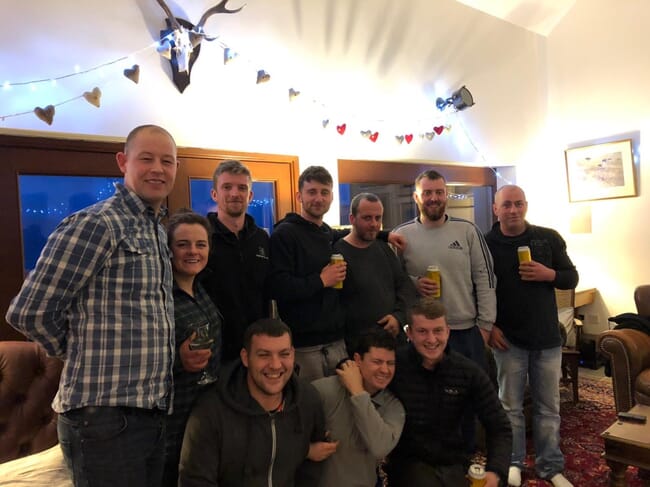
Christmas and New Year is a time of reflection for many, and whilst I'm not one for soppy sentiments, I've often thought recently about how lucky I am to have landed in such a special place. Mowi and the fish farm are undoubtedly an important part of modern day life on Muck and, although we spend most of our days out on the sea, the place and the people who live here are a big part of our lives too. As homes away from home go, I think we’ve got a good one.

